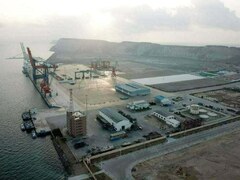Remittances in danger?

Remittances are key contributors to country’s foreign exchange reserves and have remained resilient. The crash in oil prices, however, has started to raise concerns over their vulnerability to oil prices.
The illustration shows no deceleration in remittances as a result of crude oil price decline back in 2014. In fact, these inflows have gradually increased over time. However, the concerns of downward pressure on remittances holds weight largely because of two reasons. First, situation in the GCC world is different today.
Gulf region is the largest source of migrant remittances in South Asia including Pakistan. Back in 2014-15 when crude oil prices nosedived to their new normal, countries in the region were not going through economic slowdown and hence were yet to witness a rise in nationalist sentiments. A study also found no sizeable impact of changes in oil prices in 2014 on remittance outflows from GCC countries, because of significant fiscal capacity that the GCC countries had to withstand near-term impact of oil price decline.

Unfortunately, that fiscal space is missing today, and a direct impact has been a preference for hiring shifting to locals and nationals. The same has been a key factor for lower remittances in Pakistan from Saudi Arabia. So, plummeting oil prices coupled with fiscal weaknesses of the oil exporting countries that are a key source of remittances, create significant chances of an adverse impact.
A second factor that will aid weakness in remittances is the global outbreak of Coronavirus (COVID 19) which is likely to induce economic recession across the globe. In the particular case of the GCC countries, spread of Coronavirus to the region and oil price collapse could be a double whammy if the number of cases surge in these countries.
These implications have been highlighted by the World Bank in its latest briefing, “if the decline in oil prices persists, it will erode the fragile macroeconomic and social stability of countries, especially in the Middle East and North Africa, that have been hit by the novel coronavirus.” It has warned that decline in incomes of Gulf oil exporting economies will impact foreign direct investments, remittances and grants from these countries.
Besides the possibility of layoffs due to recession in not only GCC world but also other key destinations for remittances in Pakistan, also remember that remittances will be hit by the by the travel bans and stricter visa conditions and/or visa suspensions; market sources highlight the decline in labor exports as one of the consequence of these limitations.





















Comments
Comments are closed.